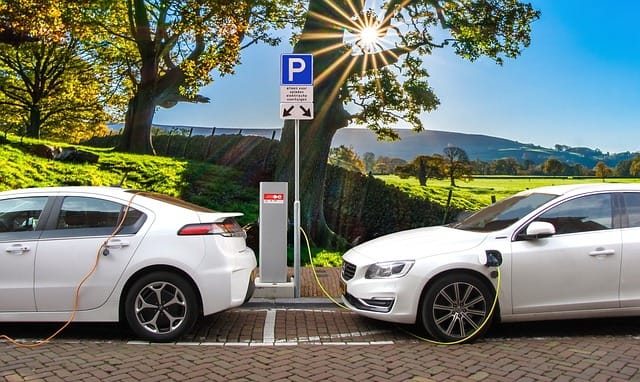The automotive industry is rapidly evolving, with sustainability becoming a primary focus. Among the various solutions being explored, the solar powered electric car stands out as a remarkable innovation. Combining the principles of solar energy and electric propulsion, this type of vehicle offers an eco-friendly alternative to traditional fossil fuel-powered cars. The advantages of a solar powered electric car extend beyond just the immediate environmental benefits; they encompass energy independence, cost savings, and technological advancements.
In this comprehensive guide, we will delve into the intricacies of solar powered electric cars. We’ll explore how they function, their benefits, challenges, and future potential. By the end, you will have a thorough understanding of why investing in a solar powered electric car could be a game-changer for both the individual and the planet.
Understanding Solar Powered Electric Cars
To fully appreciate the significance of a solar powered car, it’s important to grasp how these vehicles work. Essentially, they are electric vehicles (EVs) that are equipped with solar panels. These panels convert sunlight into electricity, which is then used to power the car’s electric motor. This dual-energy approach allows the vehicle to harness renewable energy while reducing reliance on traditional electricity sources.
How Solar Powered Electric Cars Work
Solar powered electric cars operate on the same basic principles as conventional electric cars, with the addition of solar panels. Here’s a breakdown of how they work:
Solar Panels: The vehicle is outfitted with photovoltaic cells that capture sunlight and convert it into electricity. This solar energy is used to charge the car’s battery, providing an additional power source.
Electric Motor: The electric motor uses the stored energy from the battery to power the vehicle. Electric motors are known for their efficiency and provide instant torque, resulting in a smooth driving experience.
Battery Storage: Like other electric vehicles, a solar powered electric car is equipped with a battery system that stores energy. This battery can be charged by both solar panels and standard electrical outlets, allowing for flexible energy sources.
Energy Management System: Advanced energy management systems regulate the flow of energy between the solar panels, battery, and electric motor. This ensures optimal performance and efficiency.
Benefits of Solar Powered Electric Cars
There are numerous advantages to driving a solar powered car. Let’s explore the most significant benefits:
1. Environmental Impact
One of the primary benefits of a solar powered car is its positive impact on the environment. By utilizing solar energy, these vehicles produce zero tailpipe emissions, significantly reducing air pollution and greenhouse gas emissions.
2. Cost Savings
While the initial cost of a solar powered car may be higher than traditional vehicles, the long-term savings can be substantial. Owners can save money on fuel costs since sunlight is free, and maintenance costs are typically lower for electric vehicles compared to gasoline cars.
3. Energy Independence
By relying on solar energy, drivers of solar electric cars can reduce their dependence on fossil fuels and conventional electricity sources. This energy independence can lead to increased security and resilience, especially in regions where energy prices fluctuate.
4. Innovative Technology
The development of solar powered cars is at the forefront of automotive innovation. These vehicles often incorporate the latest advancements in technology, such as energy management systems and smart charging capabilities, making them more efficient and user-friendly.
5. Incentives and Rebates
Many governments offer incentives and rebates for purchasing electric vehicles, including solar powered electric cars. These financial incentives can help offset the initial purchase price, making them more accessible to consumers.
6. Increased Range and Flexibility
A solar powered electric car can extend its range by harnessing solar energy, especially in sunny climates. This added flexibility can be a significant advantage for those who frequently travel longer distances or live in areas with abundant sunlight.
7. Minimal Noise Pollution
Electric motors are much quieter than internal combustion engines, leading to reduced noise pollution in urban areas. This contributes to a more peaceful driving experience and benefits overall community health.
8. Lower Carbon Footprint
Using solar energy reduces the carbon footprint associated with driving. As more drivers adopt solar powered electric cars, the cumulative effect can lead to a significant decrease in carbon emissions on a global scale.
9. Support for Renewable Energy
By driving a solar powered car, individuals contribute to the growth of renewable energy sources. This supports the transition toward a more sustainable energy future and helps combat climate change.
10. Enhanced Resale Value
As demand for eco-friendly vehicles increases, solar powered cars may maintain higher resale values compared to traditional gasoline-powered cars. This makes them a more attractive investment for environmentally conscious consumers.
Challenges Facing Solar Powered Electric Cars
Despite the many benefits, there are challenges associated with solar powered electric cars that must be addressed to ensure their widespread adoption.
High Initial Costs
One of the most significant barriers to purchasing a solar powered car is the initial cost. While prices are gradually decreasing, many consumers still find it challenging to invest in these advanced vehicles.
Limited Solar Efficiency
The efficiency of solar panels varies, and the amount of energy generated depends on sunlight availability. In areas with limited sun exposure, the effectiveness of solar charging may be diminished.
Infrastructure Limitations
The infrastructure for electric vehicles, including charging stations, is still developing. Many regions lack adequate charging options, which can deter potential buyers from investing in solar powered electric cars.
Battery Technology
While battery technology has improved, there are still limitations in terms of capacity, charging time, and lifespan. Ongoing advancements are necessary to ensure that solar powered electric cars can compete effectively with traditional vehicles.
Range Anxiety
Although solar panels can extend the range of electric vehicles, range anxiety remains a concern for many potential buyers. The fear of running out of battery power without access to charging stations can be a significant deterrent.
The Future of Solar Powered Electric Cars
As technology continues to evolve, the future of solar powered electric cars looks promising. Here are some trends and developments to watch for:
Technological Advancements
Ongoing research and development in solar technology and battery efficiency will enhance the performance and affordability of solar powered electric cars. Innovations in photovoltaic materials and energy storage systems are expected to drive the industry forward.
Growing Market Demand
With increasing awareness of climate change and the need for sustainable transportation, the demand for solar powered electric cars is expected to grow. Manufacturers are likely to respond by introducing more models and options.
Government Policies
As governments worldwide implement stricter emissions regulations and promote renewable energy initiatives, support for solar powered electric cars will likely increase. Incentives for both manufacturers and consumers can drive adoption.
Integration with Smart Grid Technology
The integration of solar powered electric cars with smart grid technology could optimize energy usage and create a more efficient energy ecosystem. This synergy can lead to better management of electricity demand and supply.
Expanded Charging Infrastructure
As electric vehicles gain popularity, investments in charging infrastructure will increase. More charging stations, including solar-powered options, will enhance the convenience and accessibility of solar powered electric cars.
Real-Life Examples of Solar Powered Electric Cars
Several companies are pioneering the development of solar powered electric cars. Here are a few notable examples:
Lightyear One
Lightyear One is a groundbreaking vehicle that features integrated solar panels. This innovative design allows the car to charge its battery while driving or parked, providing extended range and reducing reliance on charging stations.
Aptera Motors
Aptera Motors has developed a three-wheeled solar powered electric car that boasts an impressive range. With its unique aerodynamic design and efficient solar panel integration, Aptera aims to revolutionize personal transportation.
Sono Motors Sion
The Sono Motors Sion is another impressive example of a solar powered electric car. With solar panels covering the vehicle’s surface, the Sion can harness sunlight to charge its battery, providing additional driving range.
Tesla Solar Roof
While not a solar powered electric car itself, Tesla’s Solar Roof is an example of how solar energy can complement electric vehicles. Homeowners can generate solar power to charge their Tesla vehicles, creating a sustainable energy cycle.
Tips for Choosing a Solar Powered Electric Car
If you’re considering investing in a solar powered electric car, here are some tips to guide your decision-making process:
Assess Your Driving Needs
Consider your daily driving habits and range requirements. Determine how far you typically drive and whether a solar powered electric car can meet your needs.
Research Available Models
Explore the different models of solar powered electric cars available in the market. Look for features such as battery capacity, solar panel efficiency, and available incentives.
Check for Government Incentives
Research available government incentives for electric vehicles in your area. These incentives can help reduce the overall cost of purchasing a solar powered electric car.
Evaluate Charging Options
Consider the availability of charging stations in your area, especially if you plan to rely on public charging infrastructure. Determine whether your home can accommodate a charging station.
Look for Reviews and Ratings
Read reviews and ratings from other drivers to gain insight into the performance and reliability of specific solar powered electric car models. This information can help you make a more informed decision.
Conclusion
The rise of the solar powered electric car represents a significant step towards sustainable transportation. By harnessing the power of the sun, these vehicles offer an eco-friendly alternative to traditional cars while providing numerous benefits for drivers and the environment alike.
As technology advances and awareness of climate change continues to grow, the future of solar powered electric cars looks bright. With the potential for cost savings, energy independence, and reduced environmental impact, there’s never been a better time to consider investing in a solar powered electric car.
By understanding the mechanics, benefits, challenges, and future trends associated with these vehicles, consumers can make informed decisions and contribute to a greener planet. As we move towards a more sustainable future, the solar powered electric car will undoubtedly play a crucial role in reshaping the automotive landscape.






